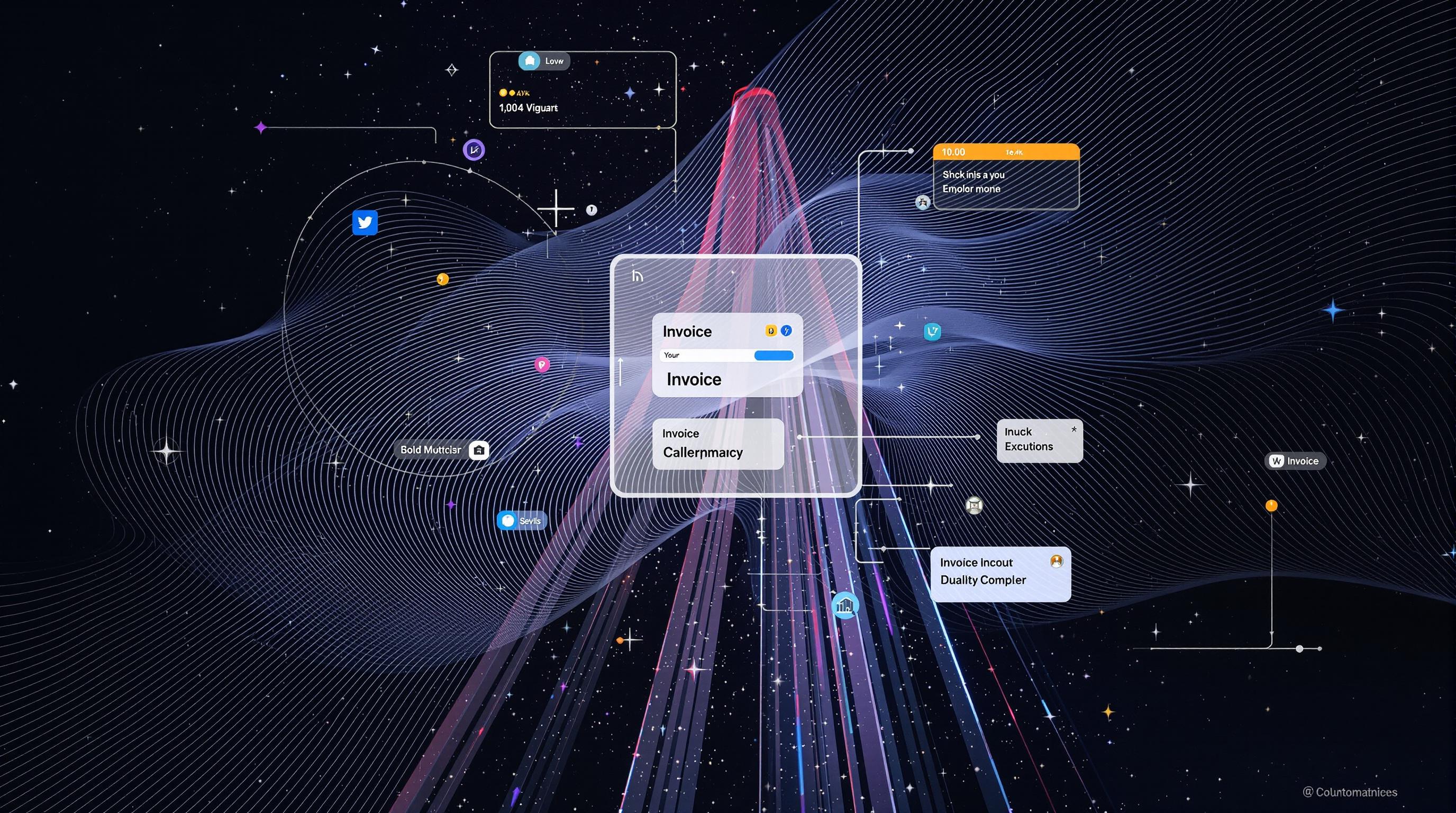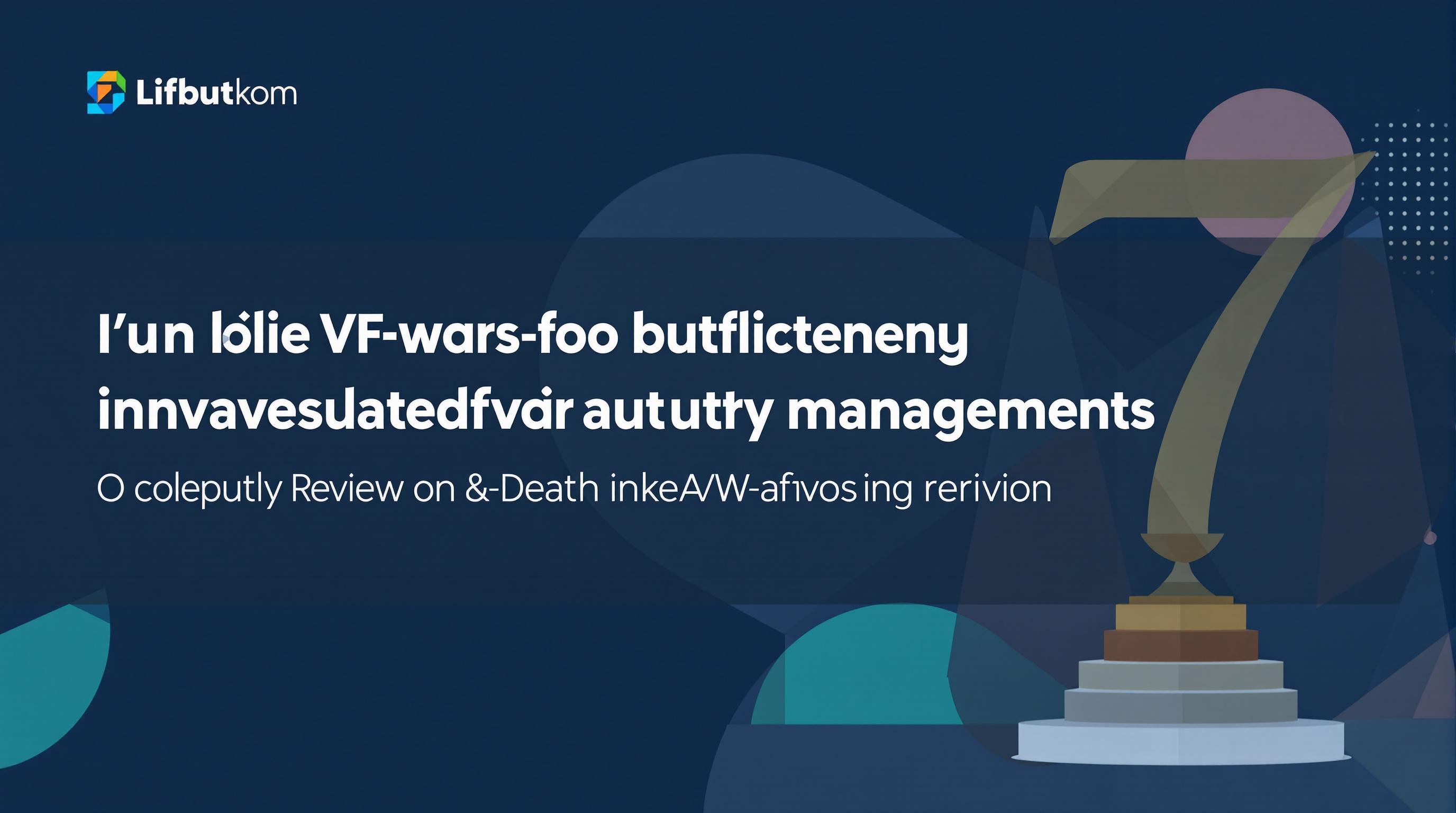Related Articles
- The Unexpected Link Between Employee Wellness Programs and Expense Reporting Accuracy in Modern Firms
- Top 5 Game-Changing Expense Tracking Apps Transforming Business Budget Accuracy Since 2020
- Unveiling the Silent Impact of Remote Work on Hidden Company Outlays and Budget Surprises
- Unveiling Hidden Costs: How Unexpected Factors Disrupt Small Company Financial Records and Solutions
- Top 6 Invoice Automation Tools From the Last Five Years Revolutionizing Workflow Transparency and Control
- Top 6 Emerging Budgeting Tools Revolutionizing Small Business Financial Strategy Since 2019
The Unexpected Role of AI Ethics in Shaping Future Financial Workflows Beyond Standard Invoicing
The Unexpected Role of AI Ethics in Shaping Future Financial Workflows Beyond Standard Invoicing
AI ethics is revolutionizing financial workflows by extending well beyond basic invoicing tasks, influencing decision-making, transparency, and trust within organizations. This article explores diverse perspectives on how ethical AI considerations are transforming financial operations, from compliance and fraud detection to employee welfare and customer interactions.
When I first dipped my toes into AI and finance, I was in my late twenties and skeptical. Now, as a 45-year-old analyst with two decades of experience, the ethical dimensions of AI have become a cornerstone of my thinking on workflow innovation. It’s no longer just about speeding up payments or automating invoice reconciliations—ethical AI frameworks are reshaping the very DNA of financial processes.
Injecting Empathy into Automated Financial Decisions
Imagine an AI system rejecting an employee’s reimbursement because it detects an anomaly, but without considering human context—say, a delayed receipt due to a hospital visit. Without ethical safeguards, such rigid automation risks alienating staff and lowering morale. A case study at a mid-sized retail firm showed that introducing human-in-the-loop review after AI flags reduced employee grievances by 40%, improving satisfaction (Harvard Business Review, 2022).
The Compliance Conundrum
Financial workflows are under intense regulatory scrutiny globally. AI automating compliance checks must align with ethical standards to avoid bias or unfair rejections. According to a 2023 survey by Deloitte, 68% of CFOs believe ethical AI practices improve regulatory trust, highlighting a pragmatic reason to embed ethics deeply within financial systems.
Why Ethics is More Than a Buzzword
Ethics, sometimes dismissed as abstract, has practical repercussions in fintech. Consider the infamous case where an AI-driven loan approval system disproportionately declined applicants from certain zip codes—reflecting socioeconomic biases. A more conscientious approach includes data diversity, transparent algorithms, and stakeholder engagement, ultimately refining workflows that are fairer and more efficient.
Financial workflows historically focused on transactional accuracy. But advancing technology nudges us to ask, “What about fairness, accountability, and explainability?” These ethical pillars foster trust not just in the technology—but in the institution deploying it, especially for younger customers who demand more transparency.
Fraud Detection: When Ethics Meet Efficiency
AI fraud detection is a classic example where ethical principles and workflow enhancements collide beneficially. Real-time transaction monitoring powered by AI can reduce fraud losses by up to 50%, but overly aggressive filters risk false positives, inconveniencing customers. Ethical design balances effectiveness with user experience, safeguarding reputations and preventing unnecessary escalations.
Think about an 18-year-old entrepreneur navigating fintech platforms; they expect speedy service but also fair treatment. Ethical AI frameworks ensure these new users aren’t unjustly flagged or blocked—a nuance often missed in traditional financial automation.
Conversational AI and Customer Trust
Conversational agents have evolved beyond basic FAQs. Ethical AI considerations ensure transparency when bots handle sensitive financial information, respecting privacy and gaining user consent. A pioneering bank reported a 25% increase in customer retention after integrating transparent AI disclosures into chatbot interactions (MIT Sloan, 2023).
Some might ask, “Is ethics slowing down innovation?” On the contrary, it accelerates sustainable adoption by preempting crises and fostering goodwill across stakeholders. As my friend, a 70-year-old retired CFO, always said, “The quickest shortcut is the one with no potholes.”
Case Study: Ethical AI in Accounts Payable
At a multinational manufacturing company, AI-assisted accounts payable reduced processing times by 30%. However, the AI initially struggled with categorizing unusual expenses, risking compliance issues. After embedding an ethical framework involving periodic human audits and ethical training for AI developers, errors dropped by 70%, demonstrating how ethical vigilance enhances both speed and quality.
Furthermore, building feedback loops — where end-users can flag problematic AI decisions—creates a dynamic ethical ecosystem. It democratizes AI governance and binds the workflow to continuous improvement rather than a one-time deployment.
The Role of Ethics in Data Privacy and Security
Financial data is among the most sensitive. Ethical AI enforces rigorous privacy standards, ensuring workflows that process personal information comply with rules like GDPR or CCPA. According to IBM, data breaches in finance cost an average of $5.85 million per incident (2023), underscoring why ethical handling of data isn’t merely moral—it's fiscally critical.
On a lighter note, humor sometimes helps in understanding AI ethics in finance. Picture an AI that, while trying to detect suspicious transactions, flags a lobster dinner as fraudulent because of its price. Without ethical context, we risk absurd outcomes that erode confidence and invite mockery. Ultimately, ethics is about making AI “smarter” in human terms.
Looking Ahead: AI Ethics as a Competitive Edge
The future of financial workflows powered by AI isn’t just efficiency—it’s embedding ethics to enhance reputation and regulatory relationships. Businesses prioritizing these practices attract socially conscious investors and customers. A 2024 PwC report noted a 22% revenue boost among firms with strong AI ethics policies integrated into workflow design.
For readers aged 16 to 70 contemplating careers or investments in finance and AI, recognizing the weight of ethical considerations prepares you to engage with technology thoughtfully. The next generation of financial professionals will be as much ethicists as technicians, navigating complexities beyond mere code optimization.
In sum, AI ethics breathes life into financial workflows by ensuring that automation serves human needs responsibly—transforming invoicing and beyond into a trust-infused, fair, and resilient financial ecosystem.



